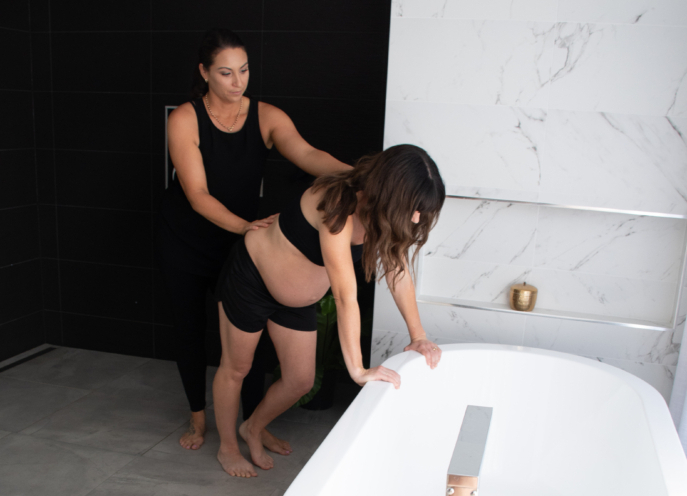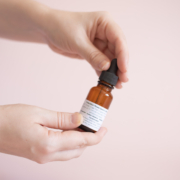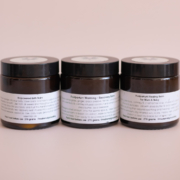Birth Hormones : What are they and how do they work?
 Birth Hormones : What are they and how do they work?
Birth Hormones : What are they and how do they work?
Hormones are such an amazing part of the human body. You and your baby are born with the ability to start labour, give birth, breastfeed and become deeply attached to each other via bonding with the flow of hormones running through your body.
It is very important that your health care providers and therapists are fully aware of the hormones that are present during pregnancy and understand not only how they work but also which ones need to be avoided.
OXYTOCIN
Also known as the “Love Hormone,” oxytocin helps to increase uterine activity or contractions of the womb. Oxytocin stimulates the uterine muscles to contract and also increase production of prostaglandins which increase the contractions further.
There are ways that you can help the natural production of oxytocin during labour and birth:
- Staying calm, comfortable and confident
- Avoiding unwelcome people or noises
- Staying upright and using gravity so baby can press against your cervix. Then as baby is born, against the pelvic floor tissues
- Stimulating your nipples or clitoris before birth
- Avoiding epidurals
- Giving your baby a chance to breastfeed shortly after birth.
I remember when Vera-Rose was born the midwife placed her on my chest and she found her way straight to the breast and started suckling…. it was an amazing experience. I highly recommend you do this and let your midwife know this before you give birth. Then once baby is latched, do not let anyone interfere with you. Have that first moment with your little one. It starts the foundation of what is to come between you and your beautiful baby.
ENDORPHINS
When you are going through some stress or pain, your body can produce calming and pain-relieving hormones called endorphins. You may have higher levels towards the end of your pregnancy.
For woman who don’t use pain medication during labour, the levels can steadily rise through the birth of your baby. Studies have found a sharp drop in endorphin levels with use of epidurals.
High endorphin levels during labor and birth can produce an altered state of consciousness that can help you deal with the process of giving birth, even if it is long and challenging. High endorphin levels can make you feel alert, attentive and even euphoric after birth, as you begin to get to know and care for your baby.
In this early postpartum period, endorphins are believed to play a role in strengthening the mother-infant relationship. A drop in endorphin levels at this time may contribute to the “blues” or postpartum depression, that many women experience for a brief time after birth.
You can enhance your body’s production of endorphins during labor and birth by:
- Staying calm, comfortable and confident.
- Avoiding disturbances, such as unwelcome people or noise and uncomfortable procedures.
- Delaying or avoiding epidural or opioids for pain relief.
ADRENALINE
Adrenaline is the “fight or flight” hormone that humans produce to help ensure survival. Women who feel threatened during labor (for example, by fear or severe pain) may produce high levels of adrenaline. Adrenaline can slow labor or stop it altogether. Earlier in human evolution, this disruption helped birthing women move to a place of greater safety.
Too much adrenaline can cause problems in labor and birth by:
- Causing distress to the baby before birth.
- Causing contractions to stop, slow or have an erratic pattern, and lengthening labor.
- Creating a sense of panic and increasing pain in the mother.
- Leading health care providers to respond to these problems with caesarean surgery and other interventions.
You can keep adrenaline down during labor and birth by:
- Staying calm, comfortable and relaxed.
- Being informed and prepared.
- Having trust and confidence in your body and your capabilities as a woman.
- Having trust and confidence in your care providers and birth setting.
- Being in a calm, peaceful and private environment and avoiding conflict.
- Being with people who can provide comfort measures, good information, positive words and other support.
- Avoiding intrusive, painful, disruptive procedures.
PROLACTIN
Prolactin is known as the “mothering” hormone. The role of prolactin around the time of birth has been less researched than the hormones described above. It increases during pregnancy and peaks when labor starts on its own.
As has been shown in other mammals, continued prolactin production during and after labor appears to be readying a woman’s body for breastfeeding. It may also play a role in moving labor along and helping the newborn adjust to life outside the womb.
Prolactin is central to breast milk production. High levels of prolactin with early breastfeeding may foster women’s caretaking behaviors and adjustment to being a mother. This hormone may also support the infant’s healthy development.
Low levels of prolactin may cause problems through:
- Poorer transition of the baby at the time of birth.
- Poorer growth and development of the baby.
- Poorer adjustment of a woman to motherhood.
You can likely promote your body’s production of prolactin by:
- Waiting for labor to start on its own.
- Minimizing stress during labor and after birth.
- Keeping woman and baby together after birth.
- Breastfeeding early and thereafter on cue from the baby.
MAXIMISING THE ROLE OF BIRTH HORMONES
As you can probably tell from the information above, some features of typical hospital childbirth settings, like noise or medical interventions, can interfere with your body’s natural processes. To avoid this and maximize your body’s ability to follow its natural processes, it’s a good idea to seek out a birth setting that supports this.
Out-of-hospital birth settings and one-on-one continuous labor support, such as doula care, can help create conditions that enhance your body’s natural production of helpful hormones and keep disturbing hormones in check. You can also create your own birthing room. And if you are birthing within the hospital you have every right to design that room how you wish. You can take your own music, have photos or birth affirmations in that room.
I have many contacts for some beautiful doulas and if you would like some information on them, then please reach out.
Your birth can be how you wish it to be and I truly wish I knew all of the information I know now, before I birthed my son Hawaiki.
You might like to help your body get ready for birth with my Labour Preparation Experience.
While in labour, the following products can also assist:
Labour and Birth Flower Essence Blend
Full Bloom Pregnancy and Labour Herbal Tea
Metamorphosis: Intention Candle for Birthing
Much love,

JESS NGAHEU
Maternal Bodywork Specialist





